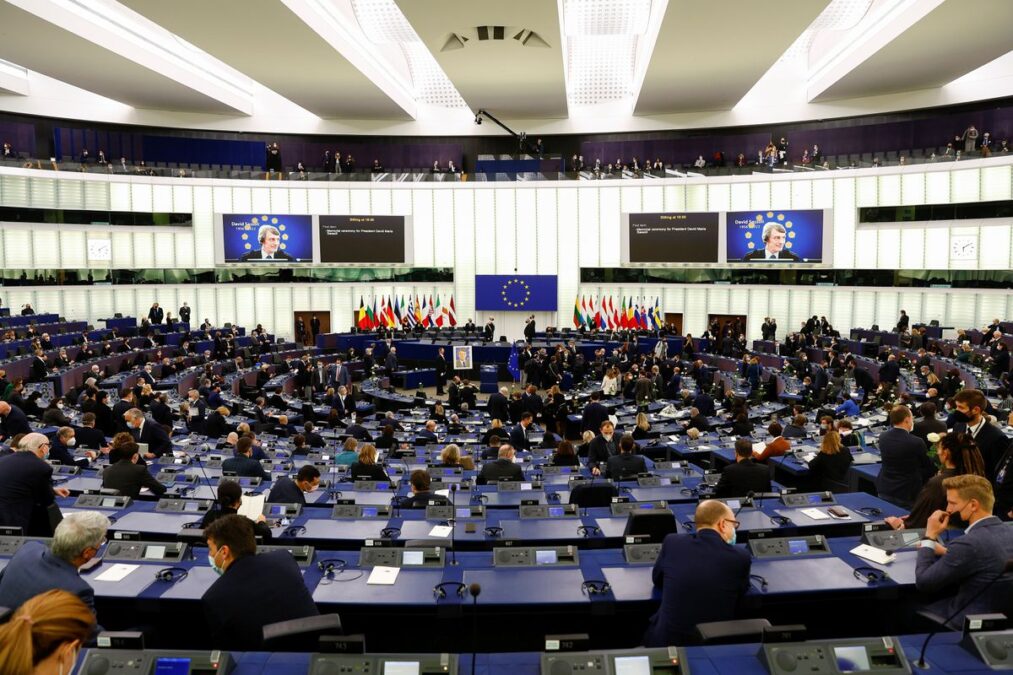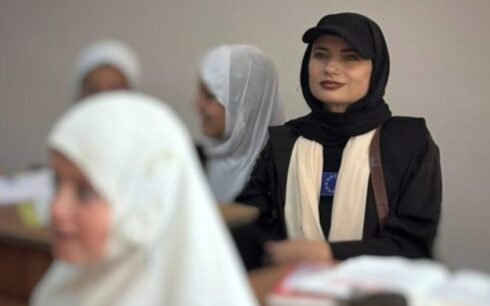The European Parliament on Thursday adopted a resolution on the respect for human rights in Afghanistan and stated the “staggering regression” in women and girls’ rights under the Taliban qualifies as “gender apartheid”.
The resolution stated that the EU Parliament Members (MEPs) deeply deplore the continuing deterioration of the political, economic, humanitarian, human rights and security situation in Afghanistan, especially for women and girls, since the Taliban takeover in August 2021.
According to the resolution, EU Parliament members (MEPs) condemn the restrictions imposed by the Taliban on women and call on “the de facto authorities of Afghanistan to ensure that all gender-based restrictions on women are lifted and that they can again actively participate in public life in Afghanistan.”
MEPs also stressed that this must be a key condition for any engagement of the international community with the Taliban.
In addition, the MEPs denounced the ban on secondary education for girls, and stated it was in direct violation of their universal right to education. They in turn reminded the Taliban of their promises that women’s access to education would be restored adding the Taliban therefore need to “honor its own
commitments, lift the ban and resume classes without delay and ensure achievement of UNESCO’s educational goals”.
MEPs also urged the European Union to step up its support to groups in Afghanistan working to defend the rights of women and girls, including alternative education options for girls, and to fund specific assistance and protection programmes.
The resolution also noted that Parliament deeply regrets that since the Taliban takeover, access to information has become increasingly difficult, journalistic independence has been curtailed, and civil society organizations have been subjected to increasing pressure.
MEPs also noted the persecution of the Hazara ethnic group “could amount to crimes against humanity” and stated they are “appalled by the increasing attacks on and marginalization of minority groups”.
They expressed deep concern about the situation of the Hazara, Hindu, Sikh, Christian and other minority groups since the Taliban takeover, and about the systematic attacks and broader discrimination against them, including arbitrary arrests, torture and other illtreatment, summary executions and enforced disappearances.
While the Taliban appointed an all-male interim government, including members from the 1996-2001 Taliban regime, “some of whom are wanted on terrorism charges”, the EU stated it maintains a solid position of non-recognition of the de facto Taliban government.
MEPs noted in the resolution that the EU has a solid position on any political engagement with the Taliban, guided by benchmarks for engagement based on the principles of adherence to human rights for all and the rule of law. However, it was noted that since
15 August 2021, “there has only been a clear deterioration in all these benchmarks”.
This, according to the resolution, means that “any legitimisation of the Taliban authorities cannot be justified and that the current benchmarks need to be updated with a view to establishing an EU
long-term strategy on Afghanistan in light of the current situation and the failure of the Taliban to deliver on any of their initial promises.”
This resolution comes just two days after the President of the European Parliament Roberta Metsola said that the European Union is committed to helping the Afghan people and not the Taliban.
She said 15 months after the fall of the republic government and the take over by the Taliban, women were increasingly being squeezed out of public life, and refused entry to public spaces.
“The Taliban want women to be invisible. We want them to thrive,” she said.
Metsola said that despite the initial promises to support women’s rights, the progress achieved in Afghanistan over two decades is being rolled back by the ruling group.
She also added, “Until women regain their rightful place in society, we will continue to amplify their voices.”





